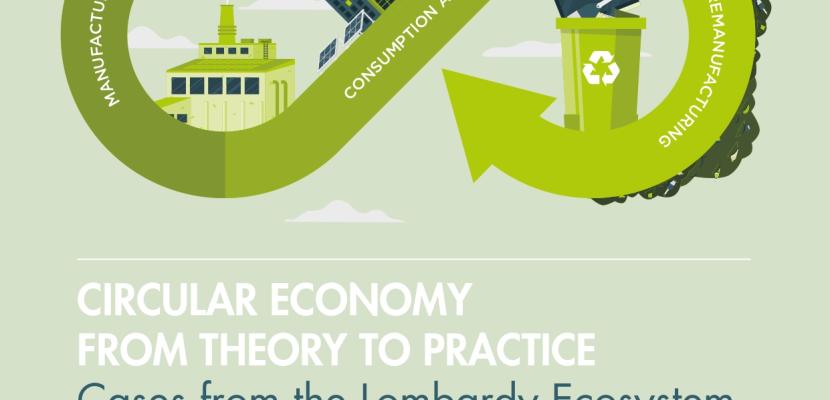
AFIL’s brochure: “From Theory to Practice. Cases from the Lombardy Ecosystem”

About this good practice
Transitioning to a circular economy requires businesses to adopt sustainable models, yet many struggle with implementation due to a lack of knowledge-sharing and cross-sector collaboration. To address this, AFIL and the Strategic Community “De-and Remanufacturing for Circular Economy” launched a best practice collection to inspire industry-driven circular business models at both local and European levels, called “From Theory to Practice. Cases from the Lombardy Ecosystem”. The growing industrial interest in sustainable manufacturing has led to an expansion of documented cases, reinforcing the role of knowledge exchange in accelerating circularity.
This initiative collects and shares real industrial best practices, covering re-use, repair, remanufacturing, and recycling in open and closed-loop systems. The latest publication presents 25 cases demonstrating increased commitment to circular manufacturing. By providing a structured framework for best practice sharing, the initiative fosters innovation, supports companies in overcoming challenges, and encourages the adoption of circular strategies.
The publication engages key players in the circular value chain, including product designers, manufacturers, technology providers, and post-use product collectors. Beneficiaries include companies adopting circular strategies, policymakers shaping sustainability regulations, and the broader industrial ecosystem aiming for enhanced competitiveness through sustainable innovation.
Resources needed
The practice required funding for graphic design and printing. In terms of human resources, two people were involved in gathering information and contacting relevant stakeholders.
Evidence of success
This practice is considered successful as it has expanded from 18 cases in 2018 to 25 in the latest edition, reflecting growing industrial engagement in circular manufacturing. It has fostered collaboration among key stakeholders and provided a structured framework for best practice sharing. The publication has been widely distributed, raising awareness and inspiring new circular economy initiatives at both local and European levels, demonstrating its impact on industry innovation.
Potential for learning or transfer
This practice is valuable for other regions as it provides a structured approach to sharing best practices in circular manufacturing, fostering industry collaboration and innovation. Key success factors include strong stakeholder engagement, alignment with regional and EU sustainability goals, and clear documentation of real-world cases. The model is easily transferable, requiring minimal funding and a dedicated team to gather and share insights.
Potential barriers to transfer include limited awareness, lack of coordination among industry players, and insufficient policy support. However, with proper facilitation by clusters or regional bodies, these challenges can be overcome.
The initiative was shared beyond Lombardy Region, thanks to the involvement of the Cluster in different projects. Its impact demonstrates how knowledge exchange can accelerate circular economy adoption, making it a relevant practice for regions aiming to boost sustainability in manufacturing.
Further information
Documents
AFIL - Circular Economy from theory to practice.pdf
Website
Good practice owner
You can contact the good practice owner below for more detailed information.
